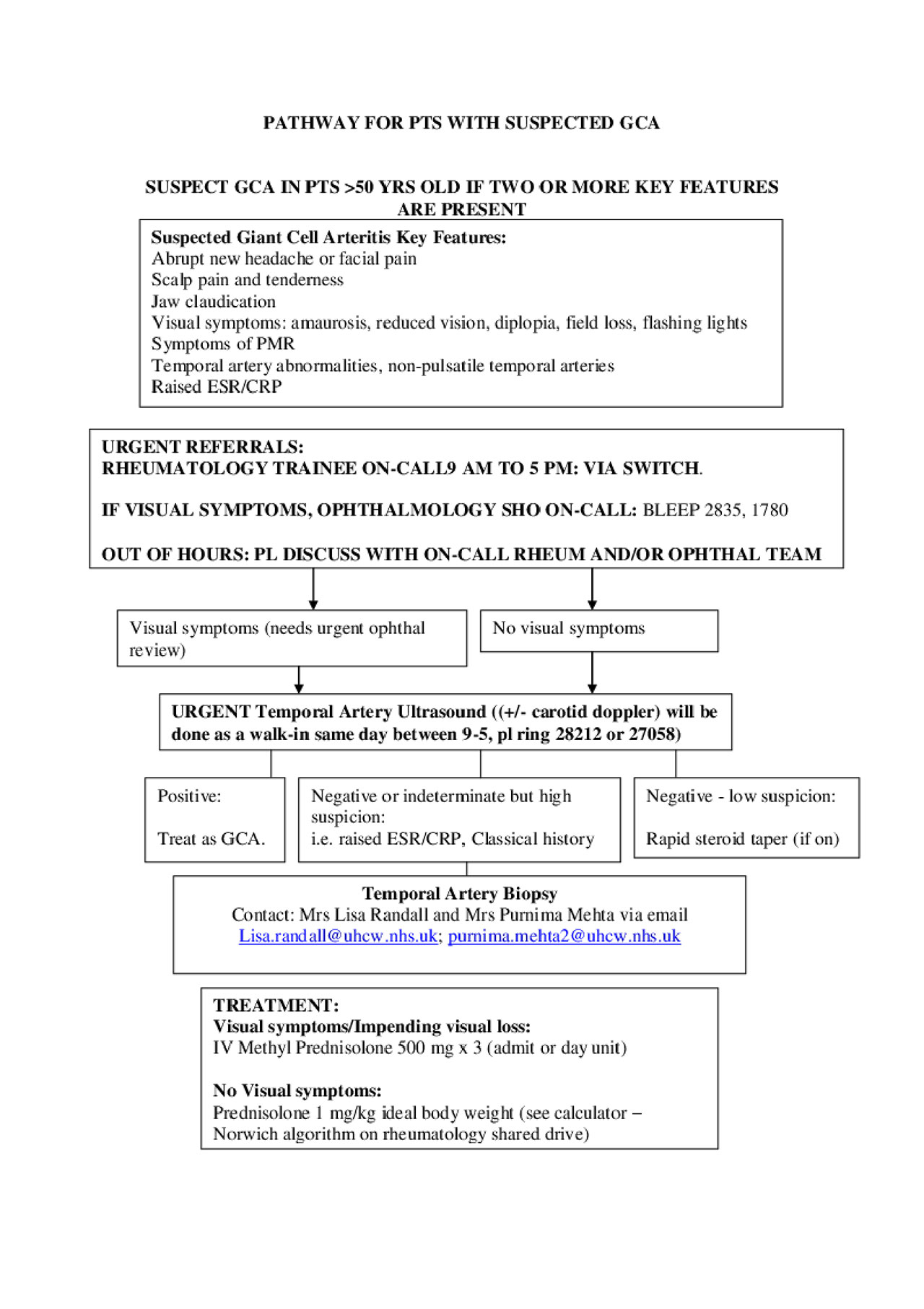Session Information
Date: Tuesday, November 12, 2019
Title: Vasculitis – Non-ANCA-Associated & Related Disorders Poster III: Giant Cell Arteritis
Session Type: Poster Session (Tuesday)
Session Time: 9:00AM-11:00AM
Background/Purpose: University Hospital Coventry and Warwickshire NHS Trust (UHCW) established its one stop Fast Track Pathway (FTP) for Giant Cell Arteritis (GCA) in 2013. It sought to address previously unmet needs by offering patients a same day clinical review, ultrasound Doppler, diagnosis, and treatment initiation for patients with GCA. It aims to prevent GCA related complications like vision loss by treating affected patients promptly whilst avoiding exposing unaffected patients to corticosteroids. Patients are normally reviewed on the same day and have an USS doppler performed in the vascular lab if indicated and then a decision is made about treatment. This abstract details the results of this pathway for the period of 2014 to 2017.
Methods: The clinical records of all patients with suspected GCA seen on the UHCW GCA Fast Track Pathway between, and including, January 2014 and December 2017 were reviewed. Patients were identified from ultrasonography lists as all patients attending the fast track pathway are required to undergo an ultrasound Doppler of their temporal arteries. A predetermined piloted proforma was used to collect data regarding patient demographics, clinical features, investigation results, steroid use, and final diagnosis. All patients who had been referred with suspected GCA were included and missing data was sought from electronic and paper records.
Descriptive analysis was performed on the data using Microsoft Excel. Ethical approval was granted by the UHCW Research and Development Department.
Results: Total of 652 patients were assessed on the GCA pathway between 1st January 2014 and 31st December 2017 (both inclusive). The numbers have progressively increased each year (98/154/123/277). Demographic details revealed that 435 patients were female (~66%). Ages ranged between 52 and 95 years; median age was 70 years. Of these, 143 patients were diagnosed with GCA; 509 patients did not have GCA. Headache was the commonest presenting symptom (~74%), with visual symptoms also being common (~45%).
We evaluated the utilty of our vascular doppler service compared to clinical diagnosis (see table below).
To cite this abstract in AMA style:
Dubey S, Pinnell J, Tiivas C, Chaudhuri K, Mehta P. Real Life Data over 4 Years from a Fast Track GCA Pathway in Coventry [abstract]. Arthritis Rheumatol. 2019; 71 (suppl 10). https://acrabstracts.org/abstract/real-life-data-over-4-years-from-a-fast-track-gca-pathway-in-coventry/. Accessed .« Back to 2019 ACR/ARP Annual Meeting
ACR Meeting Abstracts - https://acrabstracts.org/abstract/real-life-data-over-4-years-from-a-fast-track-gca-pathway-in-coventry/

